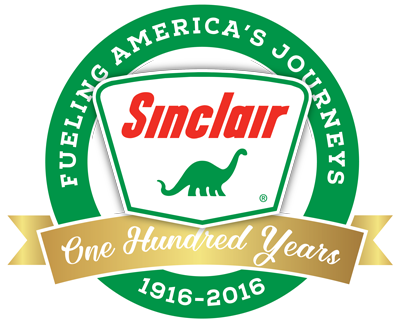1980s
In true Sinclair fashion, Earl Holding made a bold move during tough times.

Between OPEC, the oil embargo, and the deregulation of oil prices, the industry was constantly shifting – and more than 100 refineries shut down between 1980 and 1985. Among these was a Texaco refinery in Tulsa, Oklahoma, that employed 400 people, and closed in 1982.
Earl Holding decided that despite volatile times, it was a great opportunity for Sinclair – the refinery was perfect for supplying prospects from the Mississippi River to Nebraska and from Oklahoma to the Canadian border. What’s more, Tulsa had once been home to Harry Sinclair and the Sinclair Oil Company.
“In a sense, we feel we are coming home again.”
Earl Holding
But it wasn’t until 1983 that Texaco agreed to sell to Sinclair.
Holding announced the agreement on a Monday. Sinclair’s legal team had to negotiate the details and draw up the papers by that Friday.
Friday afternoon, the leaders of both companies gathered to finalize the deal, signing around 50 different documents in succession until they got to the deed, at which point, Texaco’s vice president looked at Holding and said, “Now, Mr. Holding, I’m happy to sign the deed, but you probably ought to go ahead and pay me for this.”
That was the one thing no one had thought of. Holding asked his chief counsel, Peter Johnson, “What are we going to do?”
Johnson, at a loss, offered to write a personal check.
“I wrote a check out for $20 million on my personal bank account,” he recalled. “Then I called the [company] treasurer and said, ‘Charles, first thing Monday morning, you need to transfer $20 million into my bank account.’”

Holding realized they were going to have to operate at peak efficiency to keep the Tulsa refinery afloat. With a skeleton crew of the finest men he could find – little more than half the number that had operated it before – he gradually increased production by 50 percent.
“These men from major oil companies came in to find out how in the world Earl could do that,” recalled VP Dale Ensign, who had worked closely with many of those companies.
“There’s only one genius, and that’s Earl Holding.”
Dale Ensign, vice president of government relations

Always moving forward.
- New headquarters. In 1982, Holding moved the company’s executive offices from Denver to Salt Lake City, bringing both his hospitality and oil businesses under one roof: a partially finished office building he got at a deep discount from a local developer-in-distress. Holding had the building finished out with practical but high-quality materials, and moved in the employees as sections were completed.
- New payment methods. In 1987, after testing at 350 company-owned service stations, Sinclair decided to expand its credit card program to 2,000 retail outlets in 23 states.
- Cleaner air. When Tulsa was included on the Environmental Protection Agency’s “dirty air list,” Mayor Roger Randle asked the oil companies in the area what they could do to reduce the volatility of their gasoline. Sinclair pledged to lower the Reid vapor pressure of gasoline sold in Tulsa by one pound per square inch (psi), from 9.5 psi to 8.5 psi.
“This…is an outstanding example of voluntary industry initiative to improve air quality.”
William G. Rosenburg, Assistant Administrator for Air and Radiation, U.S. Environmental Protection Agency
